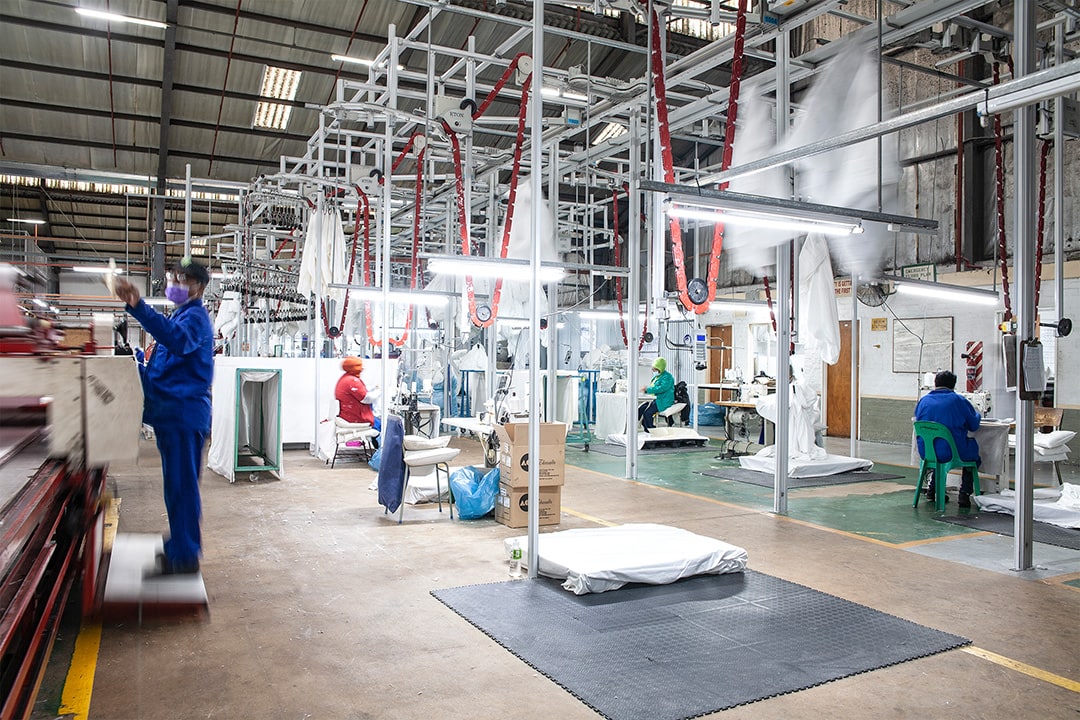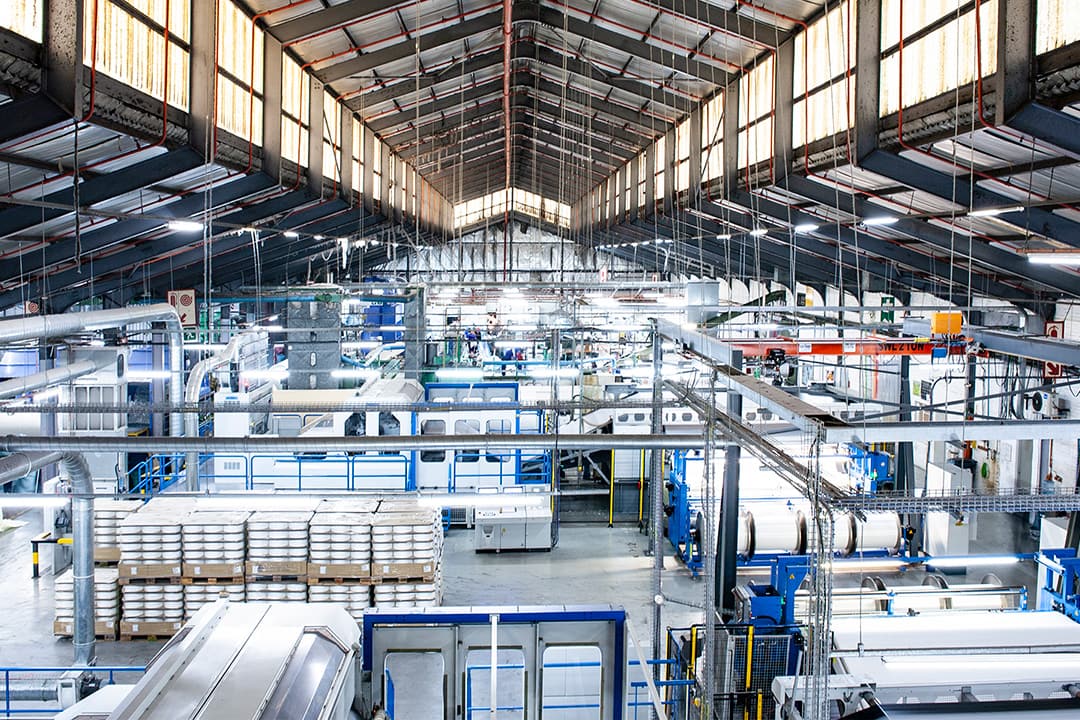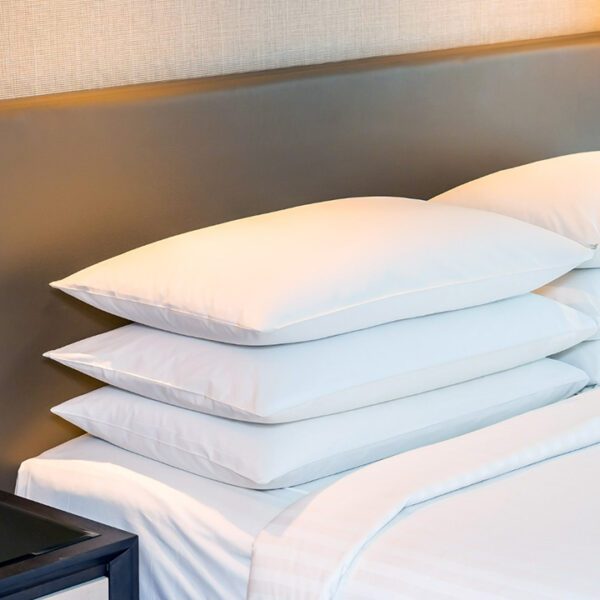Romatex is a leading manufacturer and supplier of stitch-bonded non-woven material in South Africa. This sustainable textile is manufactured from recycled polyethylene terephthalate (rPET) plastic, which is most commonly used to produce plastic bottles.
There are many end uses for stitch-bonded non-woven material, including shopping bags, waterproofing membranes, vertical blinds, home textiles, footwear, eco-blocks for housing construction, home textiles and bags.
The colour of the material is determined by the rPET used; beige material comes from ginger beer bottles, green material comes from lemonade bottles and white material comes from clear plastic bottles. Romatex also offers custom dyeing and printing services for customers that purchase stitch-bonded non-woven material.
We have the capacity to manufacture two million square metres of this material every month, which is enough to eradicate around 54 million plastic bottles from landfills. This sustainable textile is hugely beneficial for the economy and the environment. It is an ideal product for rPET and sustains South Africa’s recycling industry.

How is stitch-bonded non-woven material made?
Stitch-bonding is a process whereby the fibres of the material are bonded together by stitching them with a continuous filament. This creates a series of loops that hold the fibres together. The fibres are made from rPET, which begins its life as plastic bottles and other PET products.
This plastic is collected by recyclers and informal waste collectors from landfills across the country. The plastic bottles are sold to recycling facilities, which wash, dry and separate the plastic by colour. They do this so that the rPET has a uniform colour at the end of the process; if all colours were recycled together, then the end product would not be as appealing.
The plastics are pelletised by the recycling facility and sold to various companies. For stitch-bonded non-woven material, these pellets are then extruded into the thin fibres used to create the bulk of the textile. These fibres are stitched together with a polyester filament by Romatex. It is a 100% local product; nothing is imported.

Romatex produces various textiles
We are able to produce stitch-bonded non-woven material in various widths and weights, depending on the needs of the customer. The majority of this material is used to manufacture recycled shopping bags for large South African retailers, but some of it is also sold to other end users.
Our dyeing and printing services enable us to create bespoke logos and labels for the material. These materials are important for minimising the environmental impact of plastics and contribute to the local employment sector and economy. It supports numerous business and informal jobs along the entire supply chain. For more information on our various products and textiles, please contact us today.
___
Romatex has been a leading manufacturer and supplier of stitch-bonded non-woven materials and homeware for over 50 years. Romatex is a Level 2 B-BBEE company that is owned by Deneb Investments Limited, a subsidiary of Hosken Consolidated Investments (HCI), which is listed on the Johannesburg Stock Exchange (JSE).
Our head office is based in Cape Town but we have branches in Gauteng, KwaZulu-Natal, the Eastern Cape and the Free State. For more information about our products, please contact info@romatex.co.za. Follow us on Facebook, LinkedIn and Instagram for our latest news and industry insights.

